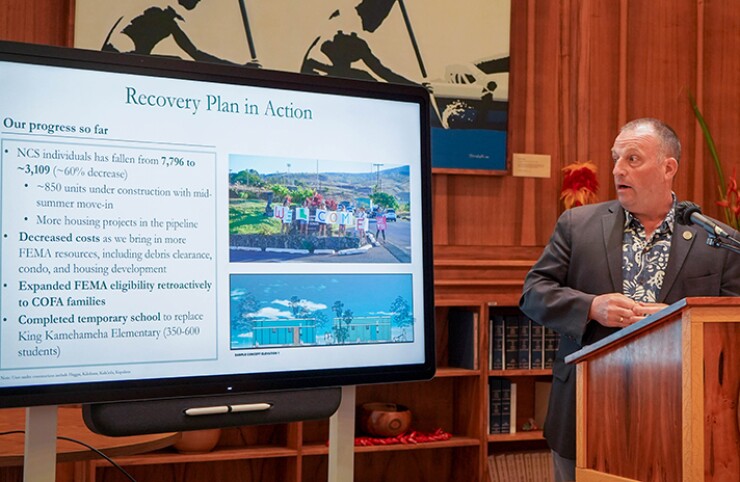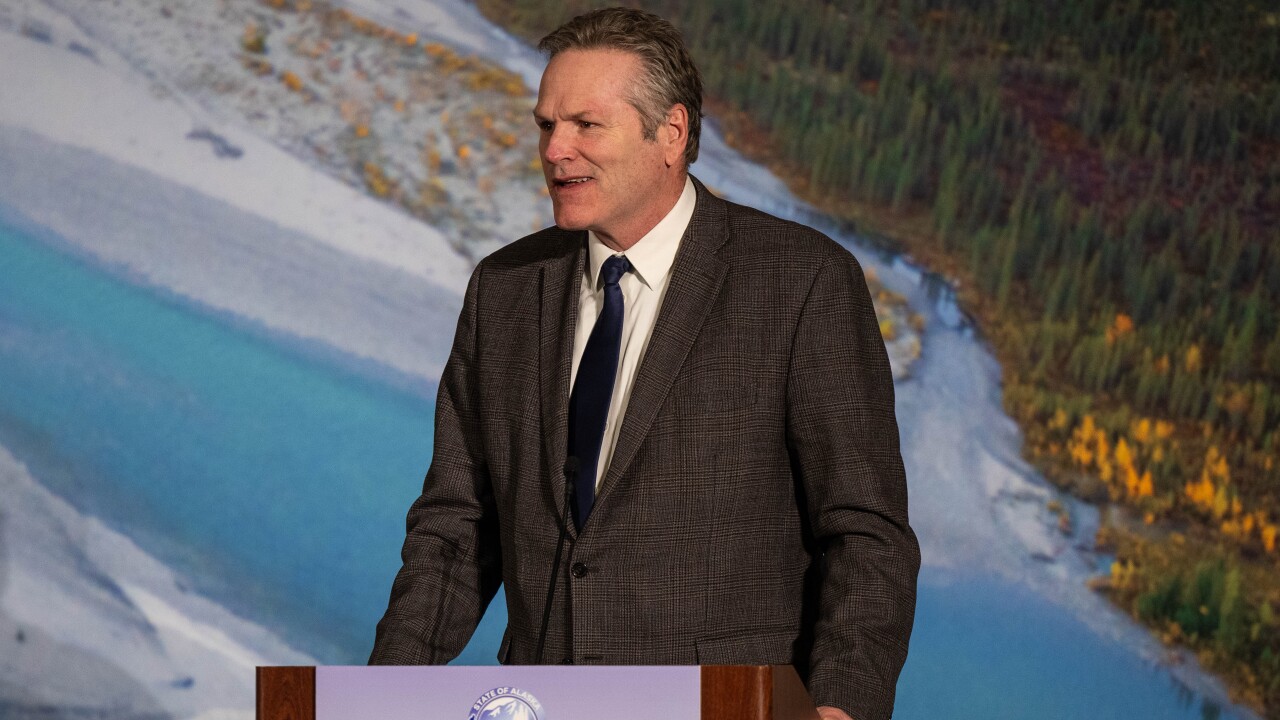Hawaii Gov. Josh Green claims the state is making headway toward reducing recovery costs by getting people displaced by fires out of hotels and into permanent housing.
Green has
"There is no level set by the administration as to what the costs will be to the rest of the operations of state government, if we don't get this under control right now," State Sen. Jarrett Keohokalole said during the Senate Ways and Means Committee Feb. 29 hearing.

But Green said during Wednesday's media briefing, "no one should think we are walking away from the rest of the state's challenges. We will keep charging in."
Hawaii Budget Director Luis Salaveria had asked the Ways and Means Committee at the Feb. 29 hearing for an emergency request that would more than double to $412 million the amount available for wildfire recovery in the current fiscal year that ends in June.
The Ways and Means Committee approved
The state signed a $500 million contract with the Red Cross to provide food and housing to people displaced by the Lahaina fires, which accrues at a daily rate of $1,000 per family for those staying in West Maui hotels. The state had assumed FEMA would cover 90% of the costs, but the agency has refused to reimburse housing costs for people who were already homeless or are undocumented.
The state continues to negotiate with FEMA, and the number of people for which the agency says it will reimburse housing costs keeps growing.
The number of people living in 11 hotels has shrunk from nearly 8,000 to 3,100, and, Green said, the state has secured permanent housing for the remainder and is just working to get everyone moved — a feat he hopes to have accomplished by July 1.
The governor also said because the state has been able to find housing for everyone, he won't move forward with the threatened moratorium on short-term rentals, though he has instructed the attorney general's office to create a task force to enforce the laws against illegal rentals, starting with West Maui, and eventually the rest of the state.
He asked property owners violating the state's short-term rental laws to voluntarily rent their units to FEMA or the state for the next two years, and then sell to a local family.
He claimed that 79,000 of the state's 89,000 short-term rentals are illegal, and rectifying that would solve the state's housing crisis. More than half of that housing stock is owned by people who don't live in Hawaii, according to the governor.
The state's finances are stable, he said, and Hawaii won't need to draw money from the $1.5 billion rainy-day fund or cut essential services.
FEMA has agreed to pay $220 million in emergency and housing costs, including $107 million for fire debris removal, the governor said.
Green added, he plans to cover some of the fire expenses by not making a $300 million payment into the Employment Retirement Services fund as planned.
"We've gone through an enormous disaster," he said. "That is why I think it's better to invest in our people rather than an extra payment on the ERS."
Green will either seek an amendment to the budget, or just let the ERS payment lapse. He currently estimates there will be a general fund carryover balance of $681 million to $981 million in fiscal year 2024 and $350 million to $650 million in fiscal year 2025.
Former Gov. David Ige had
The state implemented a plan during Gov. Neil Abercrombie's 2010-2014 tenure to speed up pension and OPEB prefunding that was
The state's debt, pension and OPEB liabilities are among the highest in the nation, as the state finances much that is covered by local governments in other states, and those liabilities remain long-term pressures for the state's credit profile, S&P analysts said in a November report.
The state has ratings of AA, Aa2 and AA-plus from Fitch Ratings, Moody's Ratings and S&P, respectively. All have assigned a stable outlook.





